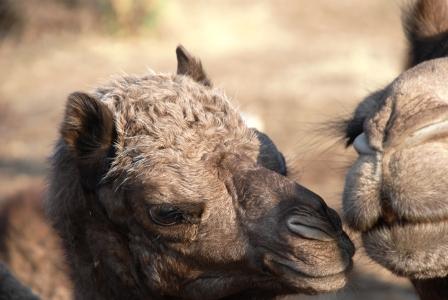Worried about the rapidly dwindling camel numbers, the Rajasthan government's cabinet declared the camel "state animal" on 30th June, 2014. In essence, the camel is now just as "sacred" as the cow - there will be a ban on camel slaughter and even on moving camels across the state's borders.
It is great that the government is taking this bold step, but the measures suggested do not address the key factors that have been reducing the camel population and which are described extensively in Camel Karma:
- Camel grazing lands are disappearing very fast and finding nothing to eat, camels are often in a state of semi-starvation.
- When camels get sick, treatment is rarely available.
- Camel breeders no longer have income from their herds as demand for draught camels is largely gone. This forces them to sell them for slaughter, although this is very much against their traditional ethics.
- In the absence of economic incentives, young Raika shun their hereditary profession and a huge body of traditional knowledge about camels and local ecologies is no longer transmitted to future generations.
In order to move camels and their keepers into the future, Ilse and her long-time associate and partner Hanwant Singh Rathore have started a Camel Conservation Centre under the auspices of Lokhit Pashu-Palak Sansthan (LPPS) in Sadri.
The centre keeps a resident camel herd looked after by a Raika, and acts as a resource centre for both traditional and modern camel-keeping. It has an extensive camel library and facilities for processing camel raw materials, such as milk, wool, and dung. These products are marketed under the brand name Camel Charisma.
There is the possibility to stay at the Camel Charisma Guesthouse and to experience the vanishing world of the Raika camel herders, if booked well in advance.
